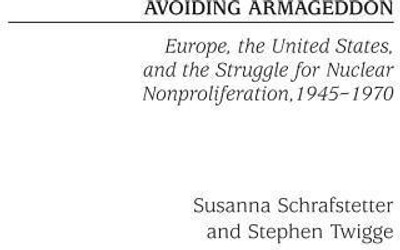Avoiding Armageddon(English, Hardcover, Schrafstetter Susanna)
Quick Overview
Product Price Comparison
From the destruction of Hiroshima to the conclusion of the Nuclear Non-Proliferation Treaty in 1968, the international community struggled to halt the nuclear arms race and to prevent the annihilation of humanity. This study offers an accessible and authoritative account of European policy in this critical dimension of world politics. How much influence did Europeans exert in Washington? Why were European objectives often at variance with U.S. expectations? To what extent did differing national agendas on non-proliferation cause friction within the Western Alliance? Schrafstetter and Twigge examine five initiatives designed to prevent or restrain the nuclear arms race: the international option, the commercial option, the moral option, the multilateral option, and the legal option. Their conclusions show the extent to which non-proliferation policy dominated European politics and the transatlantic relationship. The international option focuses on early UN plans for international control of atomic energy (1946-48). The commercial option assesses the influence of Eisenhower's Atoms for Peace proposal of 1953 and the impact of civil nuclear power. The moral option charts international attempts to outlaw the testing of nuclear weapons, resulting in the 1963 Partial Test Ban Treaty. The multilateral option discusses the role of collective nuclear forces in addressing West German demands for nuclear equality within NATO. The legal option explores British, French, and West German attitudes to nuclear disarmament and charts the international drive to stop the spread of nuclear weapons culminating in the signing of the Non-Proliferation Treaty in 1968. Throughout the analysis, attention is focused on the role of the European powers and their influence on both Washington and Moscow.


